Healthcare Negligence is Linked to Elder Depression
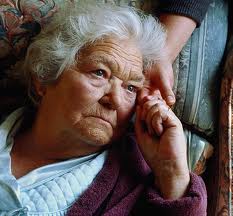
Protecting the most vulnerable citizens
The elderly population continues to be treated unfairly by medical professionals, and society as a whole; as a result of medical negligence many elderly pass away unnecessarily. There are many obstacles that older people have to face including, but not limited to: health insurance cut-backs, income inconsistency or reduction in Social Security cost of living increases, poor nutrition, illnesses and discrimination. The elderly population are alone and isolated, with many left wondering where their family members are. There is a lack of contact and connection from their love ones. Who is going to be there for the United States population of people who are growing old? Who will protect and advocate for this very vulnerable group of society?
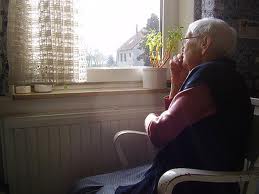

Medicare and Medicaid Cuts
Medicare and Medicaid cuts affect elderly people on Medicare and Medicaid and the providers that serve them. The policy cut-backs affect the elderly the most. “"Elderly patients suffer the most; they're walking around with no teeth” (Johnson, 2010). In many states in the union, Medicare and Medicaid will pay for tooth extraction but will not pay for many preventative adult dental services, and dentures. “During the Great Recession, millions of people relied on the Medicaid safety net; between 2007 and 2009, the number of uninsured Americans grew by more than 5 million as workers lost jobs with employer-based insurance, with another 7 million signed up for Medicaid” (Johnson, 2010). In 2011 there are many more people still unemployed, and even if a person qualifies for Medicaid it is not sufficient insurance coverage because it does not cover essential areas of health; like dentistry and eye glasses. Nutrition is a problematic area for the elderly; especially if they do not have teeth, it hinders their ability to eat and digest properly.
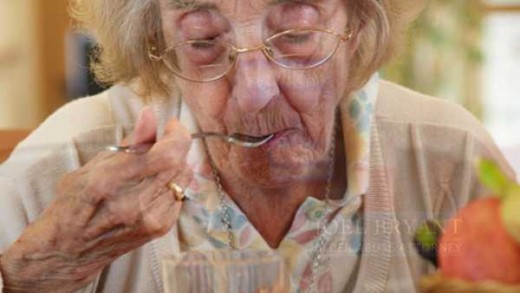
Malnutrition
“Poor nutrition and malnutrition occur in 15 to 50 percent of the elderly population. But the symptoms of malnutrition (weight loss, disorientation, lightheadedness, lethargy and loss of appetite) can easily be mistaken for illness or disease” (Beattie, 2011). Poor economic conditions hamper the elderly population’s ability to purchase good for them foods. There has long been a connection between poverty and poor nutrition. Lack of education for the aged is another reason for lack of nutrition. Medication also plays apart in appetite loss, which ultimately leads to health issues that can be related to vitamin deficiency. Forgetfulness caused by dementia or other-wise, poor transportation, and lack of mobility can all be causes of reduced nourishment.
Depression in the Elderly
A cola increase for the Social Security Administration is an annual cost of living increase people receiving SSA receive. “The net result of no 2010 cola is that millions of Social Security recipients will see their monthly benefit check reduced for the first time; the amount would be small, it represents another incremental reduction in income, like a small increase in an electric utility rate or a small property tax increase, that reduces the amount of money Americans have to spend, save, or invest” (Lazzaro, 2009 Daily Finance, Para 9). All of life’s necessities continue to be more costly. Food is more expensive, utilities are at all time high, the cost of fueling one’s automobile is reaching unprecedented numbers, but individuals income is not growing to fill the gap between what needs to be spent and what people have to spend. This is particularly true with older American’s. The cost of surviving is becoming unrealistic. The elderly are living on a fixed income, most have worked all their lives, and yet they cannot afford the basics: food, medication, and health insurance.
“The most common functional illness in old age is depression” (Jones, 1984). Many people after retirement find the lack of employment purpose disheartening. The combination of financial distress and work void’s leads some retirees to look at the job market to supplement their pensions, and fulfill a needed physiological aspect, feeling needed. This is one of the opportunities for ageism to rear its ugly head. “Ageism can be defined as "any attitude, action, or institutional structure which subordinates a person or group because of age or any assignment of roles in society purely on the basis of age, as an "ism, ageism reflects a prejudice in society against older adults” (Woolf, 2011 Webster University, Para 2). The elderly find many obstacles competing with younger more educated adults, and the United States culture does not support the idea that the elders are sacred and valuable. It is discouraging to think that at a certain age, people are in a sense, thrown away.
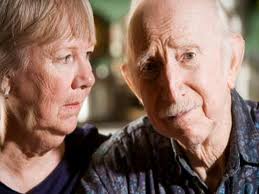
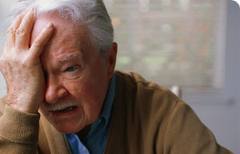
Mental and Emotional Health Linked to Visits
Go into any retirement home in America, and ask the staff how many visits their residents receive on a daily, weekly or monthly basis. Research shows that it is important for a person’s mental/emotional health to have visits from their loved ones. “One of the most pervasive forms of nursing home abuse today is that of neglect. Nursing home neglect is too frequently overlooked and results all too often in a decline in general health and eventually the death of those elderly people entrusted to nursing home care facilities” (Nursing Home Abuse Center, 2011, Para 1). The evidence shows that people handle stress and can cope better with support, as well as survive when they have a family member or advocate checking on their needs and making sure they are being treated fairly and appropriately.
Studies indicate that there is a link between social isolation to dementia. “Dementia is a general term for loss of memory and other mental abilities severe enough to interfere with daily life; it is caused by changes in the brain” (Alzheimer Association, 2011, Para 5). Many older people, predominantly those who have lost loved ones, find it difficult to be social. They may not have a good support system like, children, siblings, spouses or friends. “A study published in the journal Neurology, found that people who were not socially active but calm and relaxed had a 50 % lower risk of developing dementia compared with people who were isolated and prone to distress” (Smith, 2009 The Telegraph, Para 3). It is not known whether people who are socially isolated are in that place because of personality, and is a precursor to the possibility of developing Dementia and Alzheimer’s disease, or are socially isolated because of circumstance. Both scenarios may lead to the same destination if social isolation is a link to these memory failure conditions, the result could be altered. “Humans are very social creatures. We need healthy interactions with others to maintain our health” (Wilson, 2007 the HD Lighthouse, Para 1).

Medical Neglect
Medical neglect and abuse can include, bedsores; bed injuries; dehydration/malnutrition; medical neglect; physical neglect; emotional neglect, physical abuse, and sexual abuse. “Because elderly residents of nursing homes are physically and emotionally vulnerable, when they fall victim to incidents or patterns of abuse and neglect, it may go unreported until it is too late” (Rosen, 2003, Para21). People in facilities are also at susceptible to abuse from other residents, especially patients who have dementia or Alzheimer’s. If support is received from family members by often and random visits violence and neglect against elderly people can be reduced.
As people age they are at greater risk for diseases, disorders, and conditions. The following are the most commonly known illness affecting the elderly. Cancer is the number one killer, “over 2/3's of the elderly are affected by this disease"(At Home Personal Care, 2009). The second top disease is Dementia, “this ailment is not curable and its causes are unknown; there is no effective treatment for this disease” (At Home Personal Care, 2009). The third complaint is Parkinson’s disease, “The symptoms of Parkinson's are uncontrollable shaking of the limbs that is just as frustrating; there is no cure for this disease” (At Home Personal Care, 2009). Being dependent on others for care can be very depressing. The last of the four conditions being discussed is diabetes. “Diabetes is caused due to the body's inability to produce insulin to keep blood sugar levels under control. This disease is curable with diet and medication either in injection or tablet form” (At Home Personal Care, 2009). This disease can have social stigmas because type II Diabetes can be prevented by diet and exercise. Society can be judgmental and treat elderly people unfairly based on the diagnosis of this disease.

Every One of Us Will Grow Old
Unless someone in the present or future invents or discovers magic healing waters, or an anti-aging potion, everyone is going to grow old and eventually succumb to death. It is important for people to accept this reality and offer the same care and quality of life that they would want for themselves. It is everyone’s duty, especially within the medical community to protect and provide the best possible care to all patients, particularly our most fragile and mature societal members. The elderly are neglected through the American system by health insurance coverage deficiencies, the medical community, the work-force, and family members. Society has an obligation to end this neglect, and allow every-aged person to seek and pursue happiness and follow the American dream.
References
Alzheimer Association (2011). Dementia. Alz.org. Retrieved March 24, 2011.
Rosen, M (2003) Nursing Home Abuse Representation Around the country. Retrieved March 28, 2011.
Smith, R. (2009). Stress and social isolation linked to dementia. The Telegraph. Retrieved March 24, 2011.
Wilson, R. (2007). Loneliness and Dementia. The HD Lighthouse. Retrieved March 24
Wolf, L. (2011) Ageism. Webster University. Retrieved March 24, 2011.
http://www.heritage.org/research/reports/2013/08/obamacares-impact-on-seniors-an-update
http://www.washingtontimes.com/news/2014/feb/28/weber-obamacares-punch-to-home-health-care/
RAW STORY -- Fox News' Hasselbeck: Obamacare is hurting 'many' elderly pregnant women
UA-52893102-1






